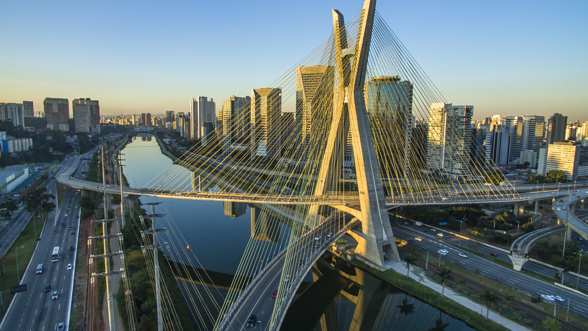“The fund investment nicely complements our emerging markets portfolio from a diversification perspective, given that our portfolio is mostly made up of government bonds. The new fund invests in corporate bonds and takes careful consideration of the related sustainability aspects. This deepens the consideration of sustainability as part of Varma’s emerging market investments. The fund invests only in companies whose profile is considered to be improving from a sustainability standpoint,” says Petri Ala-Härkönen, Varma’s Head of FICC.
The fund was launched by HSBC Asset Management (HSBC AM). Following a bottom-up investment process, the global emerging markets corporate sustainable bond fund invests in companies that operate in emerging markets and will be selected based on HSBC AM’s Sustainability Assessment. The assessment confirms that the company does not significant harm to the EU's environmental goals (Do No Significant Harm -principle), ensures the company is operating in a sustainable manner according to international norms and evaluates material ESG exposures.
When selecting its investments, the fund considers the sustainability goals the company has set for itself, the EU’s Sustainable Finance Taxonomy and the UN’s Sustainable Development Goals. The fund also excludes investments in highly polluting and dubious industries, such as coal companies, inefficient energy companies and the tobacco and weapons industries.
On the fund’s launch date, some 60 per cent of the investments were aimed at Latin America and roughly one fifth at Asia. The most important sectors in the fund’s investments are financials, consumer staples and basic raw materials, with a combined weight of about 60 per cent.
According to Ala-Härkönen, sustainability perspectives play an important role at Varma, as investments in emerging markets are made directly or through funds.
“We have, for instance, developed our investment process in direct investments and added a scoring system that takes sustainability aspects into account,” he says.

The new investment further integrates sustainability into Varma’s emerging market investments. When selecting its investments, the fund considers the sustainability goals the company has set for itself, the EU’s Sustainable Finance Taxonomy and the UN’s Sustainable Development Goals, says Petri Ala-Härkönen, Varma’s Head of FICC.
Fund invests in emerging market companies that meet sustainability criteria
The fund aims to bring about a direct positive impact on the environment and society by encouraging investee companies to improve the sustainability of their operations. It is one of the first emerging market funds to achieve the highest, i.e. Article 9, classification under the EU’s Sustainable Finance Taxonomy. Article 9 funds strive to achieve sustainability-related objectives and are subject to the strictest screening in the EU Taxonomy.
Investment decisions within the fund are based on a forward-looking analysis of the potential development of emerging market companies by the analysts at HSBC Asset Management.
“The intention is to use the analysis to focus on every asset being sustainable and on HSBC’s opportunity to drive further positive change through engagement. The analysis looks at, among other things, the sustainability objectives that the company has set for itself and its performance against those objectives. Investments are selected after careful analysis, and the intention is to hold the same investments in the fund for several years. If a company is unable to improve the sustainability of its operations in line with its objectives and demonstrate measures to improve its sustainability, the investment will be divested,” says Ala-Härkönen.
Varma Mutual Pension Insurance Company is a responsible and solvent investor of pension funds. The company is responsible for the statutory earnings-related pension cover of 945,000 people in the private sector. Premiums written totalled EUR 5.6 billion in 2021 and pension payments stood at EUR 6.2 billion. The company’s investment portfolio amounted to EUR 56.4 billion at the end of September 2022.
HSBC Asset Management, the investment management business of the HSBC Group, invests on behalf of HSBC’s worldwide customer base of retail and private clients, intermediaries, corporates and institutions through both segregated accounts and pooled funds. As at 30 September 2022, HSBC Asset Management managed assets totalling US$574bn on behalf of its clients.
Petri Ala-Härkönen
Suvi Vesterinen
Investments, real estates
